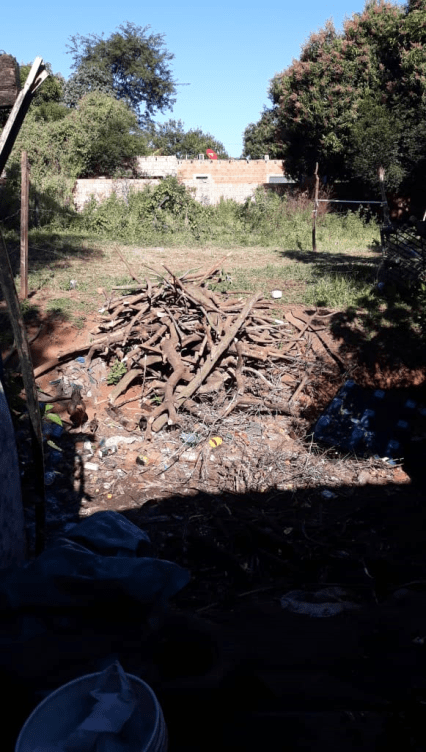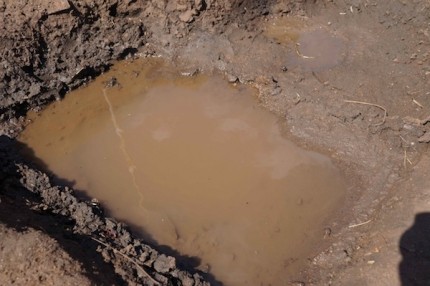
Imagine if the only way you could access water was to dig holes in a swamp and wait all night for water to seep in? This was the reality of women in the village of Mwandila, Tanzania.
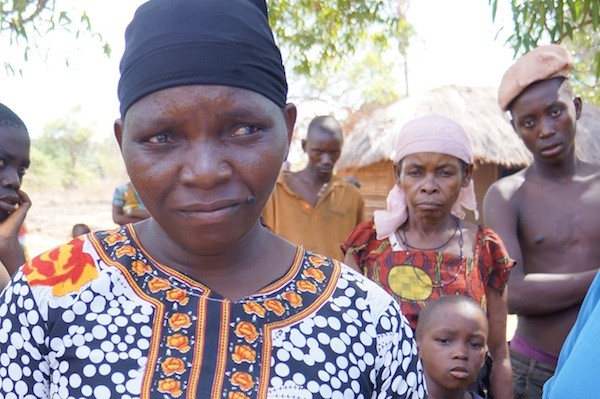
Waiting to fill a bucket of water often required sleeping by the hole all night long so that they would have something to bring home the next morning.
Sleeping in the swamp was very cold and uncomfortable, not to mention dangerous.
You can imagine the joy these women felt once a well was drilled in the village.
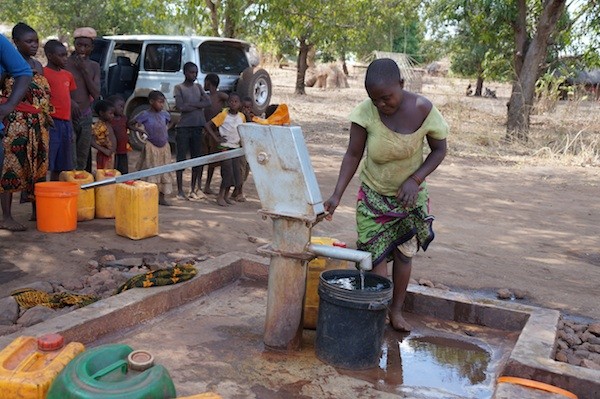
Not only did they have access to clean water instead of muddied water, they no longer had to endure harsh conditions in order to get it.
Today, the well is providing more than just disease-free water to the village, it is also creating opportunities to further wellness in the community. Mwandila now has plans to build a clinic with the excess funds from the sale of water.
WOULD YOU LIKE TO HELP OTHER WOMEN IN VILLAGES JUST LIKE MWANDILA?
THIS TUESDAY (MARCH 22) IS WORLD WATER DAY.
WILL YOU PARTICIPATE IN THIS DAY BY PARTNERING WITH US TO PROVIDE CLEAN WATER, SAFETY, NEW OPPORTUNITIES AND A BASIC HUMAN RIGHT FOR MORE WOMEN?

Moushie, as we lovingly call her, completed 60 years of stay and service with Mukti Mission.
Having heard the call to go to India, Moushie left for India in 1955. Her first assignment was to learn Marathi. She was sent to language school in Mahableshwar and never stopped practicing and doing her home work. She would was tempted many times to give up as it was a difficult language for a Westerner, but she continued persevering to reach her goal and was determined to allow her dreams to reach fruition.
Being greatly blessed with secretarial skills, she was the P.A. to the Superintendent (Chief Functionary) of Mukti. Having a deep passion to spread God’s love, Moushie along with her team travelled long distances in order that many people living in darkness would experience freendom, peace and forgiveness in their homes.
Moushie has a real heart for India and truly became one with the people. She looked after a group of girls in the flower house called ‘Frangipani’ and they were like her own daughters. She mothered them, nurtured them and helped them pursue their goals in life.
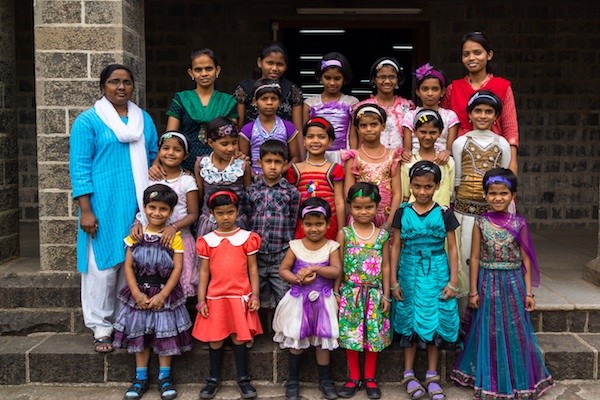
Moushie never wanted to go back to Australia and without any hesitation, she renounced her Australian citizenship to be a true Indian.
Often people would ask her “What is the secret of your success?”. She would quote one of her favourite verses in Isaiah “… He wakens me morning by morning, He wakens my ear to hear as disciples – as those who are taught.”.
You will always find Moushie in a neatly tucked saree with her hair pinned up and carrying a radiant smile which speaks volumes about her inner life. Always an early riser, her breakfast would often contain papaya and yogurt, which she says keeps her alert the whole day to recognise the needs of the weary and oppressed.
ON INTERNATIONAL WOMEN’S DAY, WE WISH MOUSHIE GOOD HEALTH, HAPPINESS, JOY AND STRENGTH AS SHE CONTINUES THIS RACE!
MANY OTHER WOMEN ARE MAKING AN IMPACT LIKE MOUSHIE. WOULD YOU LIKE TO SUPPORT THEM?
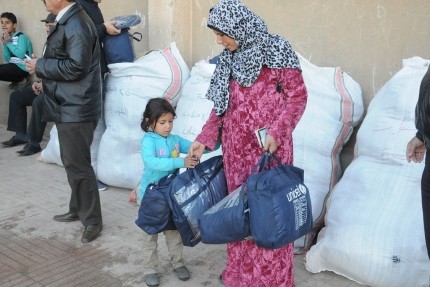
2 February 2016 – With four million Syrian and host community children in need of education and no let-up in sight in the fighting tearing the country apart, the United Nations and its partners are seeking $1.4 billion at a major conference in London on Thursday to save the current youth generation.
“The scale of the crisis for children is growing all the time, which is why there are now such fears that Syria is losing a whole generation of its youth,” said UN Children’s Fund (UNICEF) Regional Director for the Middle East and North Africa, Peter Salama, whose agency is coordinating the ‘No Lost Generation Initiative’.
“As a result of all the work being done by partners and donors, education and protection for children are now being prioritized. But what we must see in London is the step-change necessary to bring all children back to learning; to protect those who are at risk of dropping out; expand safe and inclusive learning environments; recruit and train more teachers; improve the quality of education, and support the development of technical, vocational and life skills opportunities for youth.”
The London conference is being co-hosted by Britain, Germany, Kuwait and Norway, and leaders from more than 30 countries are expected to attend, with the aim of raising new funding to meet the immediate and longer-term needs of those affected by the crisis.
Nearly five years into the Syrian war, some four million Syrian and host community children and youth aged 5-17 years are in need of education assistance, including 2.1 million out-of-school children inside Syria and 700,000 Syrian children in Turkey, Lebanon, Jordan, Iraq and Egypt.
Last year, the combined efforts of Governments and international partners helped more than one million children and youth inside Syria benefit from formal or non-formal learning opportunities. But with no political solution in sight to one of the most brutal conflicts the world has seen in decades, the number of children missing out on an education continues to climb.
Governments at the London meeting will also be urged to put more pressure on parties to the Syria conflict and those who support them to end attacks on schools and other places of learning, in accordance with international humanitarian law.
According to UNICEF, the killing, abduction and arrest of students and teachers has become commonplace, as have arbitrary attacks on schools. About one in four schools cannot be used because they have been damaged, destroyed or are being used as shelters for the internally displaced or for military purposes.
The No Lost Generation Initiative was set up in 2013. By the end of 2015 1.2 million children and youth inside Syria benefitted from improved formal and non-formal learning opportunities and more than 650,788 in Egypt, Iraq, Jordan, Lebanon and Turkey received school supplies or support through cash grants.
GAIN IS COMMITTED TO HELPING 1,000 FAMILIES WITHIN SYRIA. OUR HEARTS BREAK WITH THE DAILY REALITY MANY OF THESE CHILDREN AND THEIR FAMILIES ARE EXPERIENCING.
IF YOU WOULD LIKE TO READ MORE ABOUT OUR WORK, CLICK HERE.
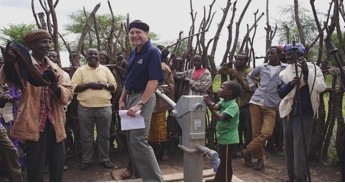
In November 2015, our GAiN Water for Life Initiative Team visited Ethiopia and brought back good news from a poor, remote village in the dry region of Southern Ethiopia – Ame Serba.
A newly-drilled deep-capped well had been finished and the team was there for the dedication.
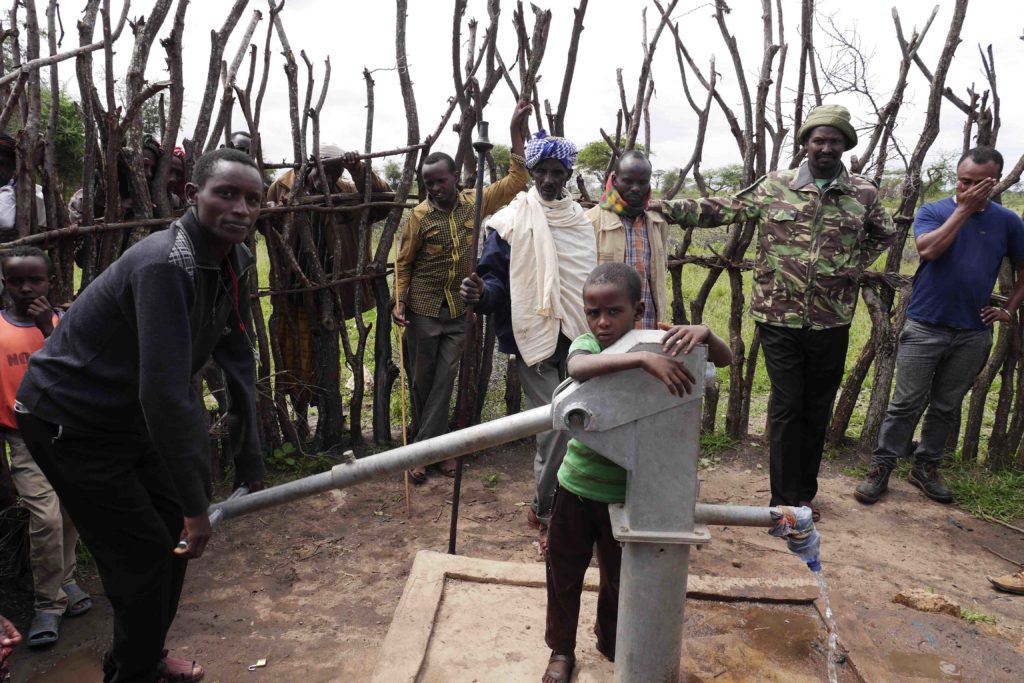
Almost the whole village of goat and cattle herders turned out, dressed in their ceremonial dress to welcome the team and celebrate the new well. Old men came with tall carved sticks–the privilege of village elders, and the women came with festive trinkets in colorful dresses ornamented with gourds.
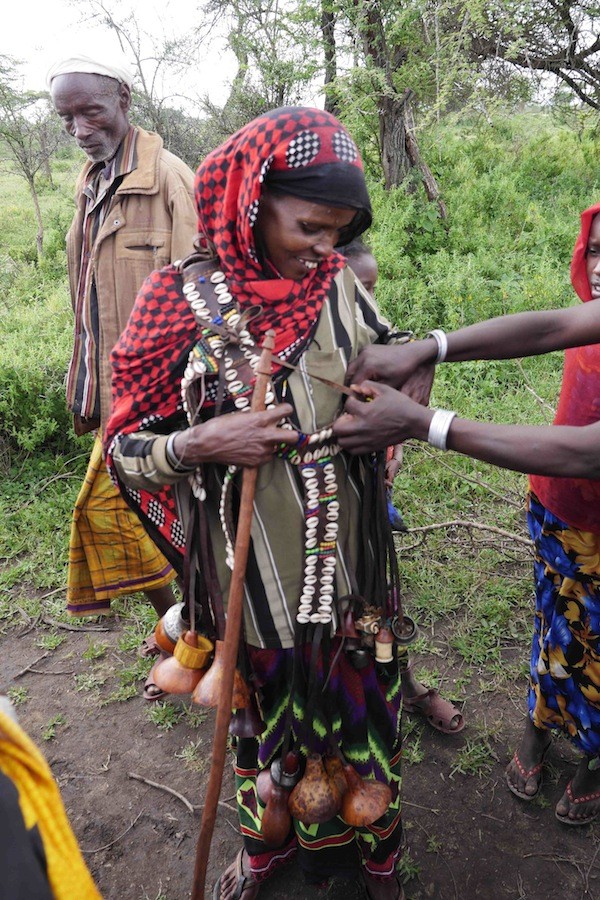
The village elders ceremoniously bestowed Borana turban headdresses on the GAiN staff to welcome them to the village.
The villagers were so overwhelmingly appreciative of the well!
It had changed their lives as a tribe and reduced the premature death of livestock due to water shortage. Women and young girls were unquestionably tasked with fetching water, and it was not uncommon to see girls 10 or 12 years old with large jerry cans strapped to their backs that they carried for long distances. Having the well close by was now saving women and girls precious hours every day. Today, they now use these hours to do more productive work on the farm and in their households, as well as go to school.
Through the partnership with the JESUS Film Church Planting Strategy team, the JESUS Film had also been shown in this village and a new church had been planted. After the dedication, the GAiN team met the new church congregation, which included the leader of the village and many other villagers.
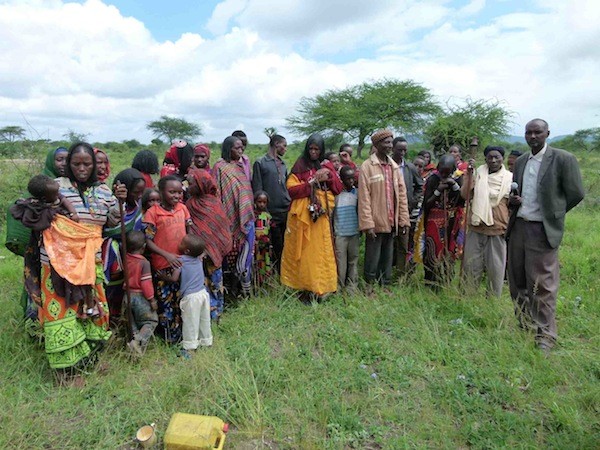
It was so moving for the teams to see, with their own eyes, all those who had been impacted from this partnership and that God’s love had been demonstrated, both in word and deed.
THERE ARE MANY OTHER VILLAGES LIKE AME SERBA THAT NEED BOTH CLEAN WATER AND THE LIVING WATER.
WOULD YOU HELP PROVIDE CLEAN WATER TO VILLAGE?
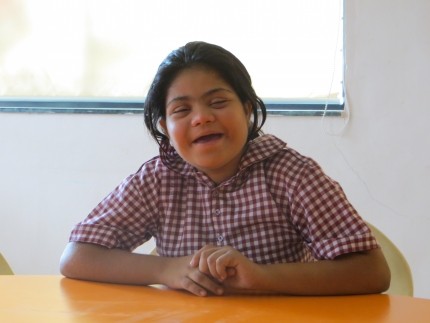
Writen by Mukti’s caregiver – Shruti first came to Mukti Mission five years ago as a small 12 year-old girl with Down Syndrome. She comes from a kind family and has a mother, father, sister and brother. Her parents are farm laborers and when they would go to work, Shruti would be left alone at home. Her parents were worried that as she approached her teenage years, it would be difficult and dangerous for a teenage girl to remain alone at home. There were no special needs schools in any of the local towns surrounding their home. Her family was told about Mukti where there would be the opportunity of an education at the Special Needs School and a safe and loving home with the Violet family.
Mangala, Shruti’s house mother, says that it took Shruti about one month to settle in when she first arrived. She immediately loved school and loves to swing. She enjoys her friends and loves singing, painting and dancing. Mangala recalls that when Shruti first arrived she could only speak a few basic sentences but now she is quite a chatterbox. She and her best friend, Rehka, enjoy playing practical jokes on each other.
It was upon returning from a brief holiday at home that the Violet family noticed that Shruti had lost weight and was weak. Her energy levels were depleted. After further investigation at the Mukti Hospital and then in Pune, Shruti was diagnosed with tuberculosis. Her treatment took place under the care of the doctors and nurses at the Mukti Hospital. Shruti missed her friends and Violet family sisters during this time. She just couldn’t wait to be better and get back to school!
So what a joy it is for me now, some seven months later, to return to Mukti and see Shruti strong, vibrant and healthy. She had returned to school and is continuing to blossom within the safe and stimulating environment that the Violet family and the Special Needs School provides. The love and dedication of her housemother, Mangala and caregiver Martha, ensure that her cheeky little giggle and smile remain firmly in place.
Last evening, I was privileged to join the family for their daily hour of praise and worship and prayer. Shruti was enthusiastically singing and clapping along with the girls. During the week, the girls have been writing and trying to memorize the theme of the fortnight from the Special Needs School which is “I am fearfully and wonderfully made”. I reflected on how precious Shruti is to God and how delighted He must be to see her fully restored to health and able to sing praises once again.
Finally, as I was leaving the family, I asked one of her sister’s what she thinks of when she thinks of Shruti. She said, ”beautiful”!
WOULD YOU STILL LIKE TO SEE THE LIVES OF OTHER CHILDREN IMPACTED JUST LIKE SHRUTI’S LIFE WAS?
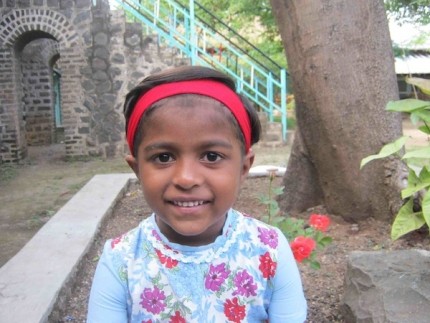
Stuti comes from a volatile background. Although her parents are Christians, their family life was not filled with love. Her father is a day labourer who seeks to provide for his family with a very small wage. Stuti’s mother was unhappy with the situation.
Her parents would fight and with each voicing their opinion but they never compromised. Stuti’s parents had serious problems with their relationship and her home life became filled with turmoil. Instead of trying to find common ground, Stuti’s mother began to spend time outside of the home.
After a while, she decided that she wanted her freedom and did not want the responsibility of raising Stuti and her two big brothers. As a result, Stuti’s mom deserted her family and her parents were then divorced.
Stuti and her brothers still needed to attend school but their father could not work and take care of them at the same time. Stuti’s brothers were put into a boys’ hostel and her father brought her to Mukti.
Stuti was only five years old when she came to Mukti Mission and lived in the nursery. Because of the trauma in her home, Stuti was a very quiet little girl. When she first arrived, she sat by herself and did not mix with others.
Her housemother lavished attention and encouragement on Stuti. Now when asked why she likes to live at Mukti she said, “because my friends are here”.
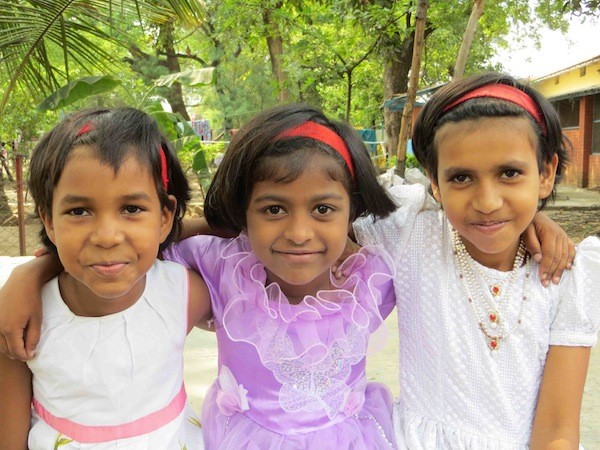
She is still a shy and quiet girl but smiles most of the time. Her favourite game to play with friends is ligori – an Indian game with tiles and a ball.
One day her father came to visit. Stuti came to meet him. He noted, “my daughter is different”. He said, “She used to sit quietly most of the time. She must be happy here.” He was delighted that she was doing well. He saw that she was smiling and peaceful. Although Stuti enjoyed her father’s visit, she felt comfortable with being at Mukti and answered her father with, “Bye, come back again!”
Stuti continues to thrive at Mukti. She has a lovely, quiet countenance. She had the privilege to act as a flower girl in a Mukti wedding. She loved dressing up and carrying flowers.
Stuti enjoys her new home at Mukti. She has come through the turmoil and found a secure place to grow up. Her rough beginning was used to mold her into a peaceful young girl.
WOULD YOU LIKE TO HELP MORE CHILDREN LIKE STUTI?
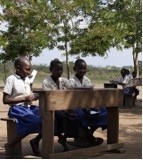
The village of Namauni, located in Tanzania, was able to build a teachers house at the school with the coming of the deep-capped water well.
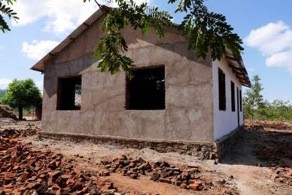

The school and teacher’s buildings were constructed with small clay bricks, but there were no water sources anywhere near the school, which made construction difficult and costly.
With the well nearby, the construction of the buildings was made much easier. In fact, the well brought down the going cost of bricks from 50 Tanzanian Schillings apiece to 30 Tanzanian Schillings apiece, all because water was readily accessible to make the bricks. The village also expects a housing boom in the near future, in large part because there is a nearby source of clean, disease-free drinking water. Having a nearby source of water will also increase the productivity of needed bricks.
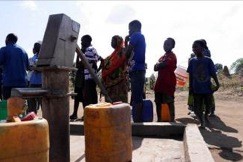
Perhaps the greatest impact is in the lives of the children; particularly the girls. Instead of using valuable time to collect water, they can now spend that time at school getting an education as well as in other village activities.
WOULD YOU LIKE TO HELP OTHER VILLAGERS EXPERIENCE THE SAME TRANSFORMATION IN THEIR VILLAGE?

The village of Namauni, located in Tanzania, was able to build a teachers house at the school with the coming of the deep-capped water well.
The school and teacher’s buildings were constructed with small clay bricks, but there were no water sources anywhere near the school, which made construction difficult and costly.
With the well nearby, the construction of the buildings was made much easier. In fact, the well brought down the going cost of bricks from 50 Tanzanian Schillings apiece to 30 Tanzanian Schillings apiece, all because water was readily accessible to make the bricks. The village also expects a housing boom in the near future, in large part because there is a nearby source of clean, disease-free drinking water. Having a nearby source of water will also increase the productivity of needed bricks.
Perhaps the greatest impact is in the lives of the children; particularly the girls. Instead of using valuable time to collect water, they can now spend that time at school getting an education as well as in other village activities.
WOULD YOU LIKE TO HELP OTHER VILLAGERS EXPERIENCE THE SAME TRANSFORMATION IN THEIR VILLAGE?
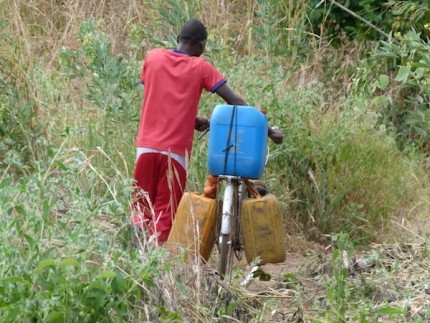
The village of Rweje in Tanzania had the most number of buckets and jerry cans lined up at a water well that our Water for LIfe Initiative team had ever seen.
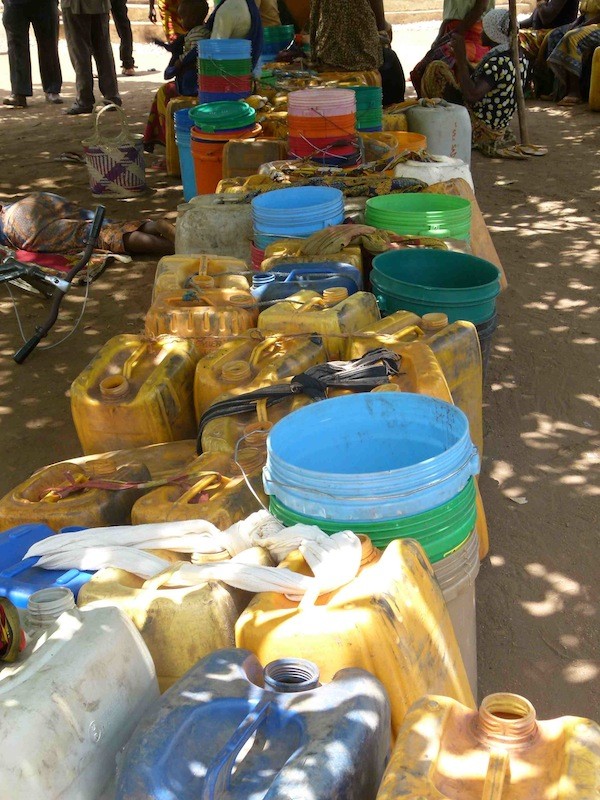
In fact, they lost count after 200!
It turns out that four villages were getting clean water from this one well.
Because there were so many people depending on this well, the borehole committee set certain days for each village to come to get water to try to reduce the pressure on the well.
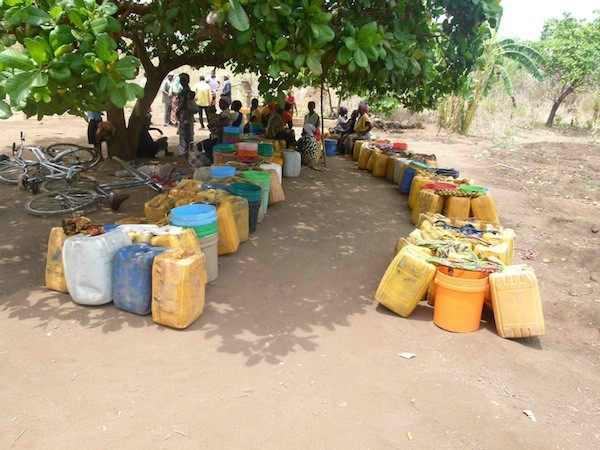
Before this water well was provided, women had to spend the whole day walking as far as five kilometers and waiting in a long lineup for their turn to get one bucket of water.
The borehole committee was very organized. They issued receipts for each bucket of water sold so they could account for all the funds collected. Plus, they even had a sign posted with all the policies such as
- opening and closing times,
- everyone must get a receipt,
- villagers must take good care of the pump and wait their turn in line, and
- each village must come on their designated day to get water.
The committee has collected 6,000,000 Tsh ($3700 CA) in five months of operation, so it has become a big revenue generator for the village. The village decided to use some of the funds to complete the roof on a school that the local government started but did not finish.
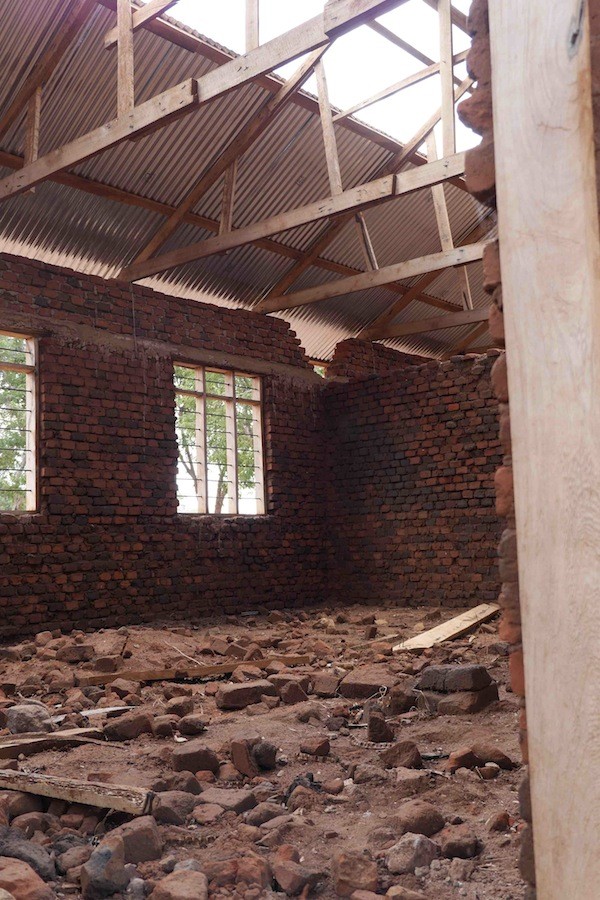
With the extra money from the well, they also had plans to complete the classrooms, one at a time as they have the funds.
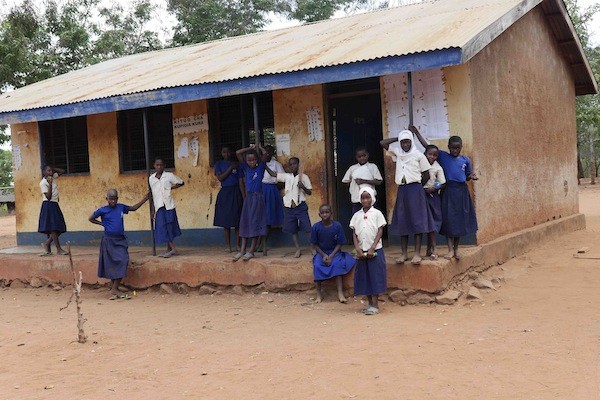
This one water well has transformed the lives of these villagers and is enabling better education and encouraging development.
WOULD YOU LIKE TO HELP PROVIDE A WATER WELL TO OTHER VILLAGES LIKE RWEJE?
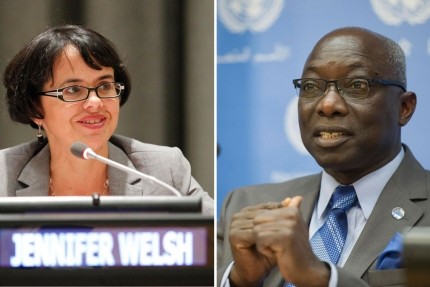
13 October 2015 – Senior United Nations human rights officials today expressed their alarm at the rise in violent rhetoric by influential religious leaders – including calls for “holy war” against certain faiths – in relation to the situation in Syria.
The UN Secretary-General’s Special Adviser on the Prevention of Genocide, Adama Dieng, and Special Adviser on the Responsibility to Protect, Jennifer Welsh, condemned the recent call by clerics in Saudi Arabia for Sunni Muslims and their States to support a “holy war” against Shia Muslims and Christians in Syria, as well as against States and non-State armed groups perceived to support them.
“Such rhetoric can aggravate the already extremely volatile situation in Syria by drawing religiously motivated fighters to join all parties to the conflict, thus escalating the risk of violence against religious communities,” said the Advisers in a statement, adding that “advocacy of religious hatred to incite or justify violence is not only morally wrong, but also prohibited under international law.”
Mr. Dieng and Ms. Welsh also expressed concern at reports that Russian Orthodox clerics had referred to the Russian participation in the conflict in Syria as a “holy battle” against terrorism, as “statements of this kind can be manipulated, feed suspicion and increase polarization of communities.”
The Special Advisers also noted the response by Russian authorities, who reportedly denied that there was any religious connotation to their involvement in Syria.
They praised the organization Syrian Christians for Peace for rejecting the concept of a Christian “holy war” and condemning those who invoke it.
The Special Advisers called on States to dissociate themselves from and condemn any form of advocacy of religious hatred, promote dialogue and protect and empower all those religious figures and human rights defenders who are working towards enhancing interreligious respect and harmony.
The officials also called on religious leaders around the world to refrain from any form of advocacy of religious hatred and incitement to violence, and to counter any use of such rhetoric, emphasizing that “religious leaders should be messengers of peace, not of war.”
“In situations in which tensions are high, as in Syria, religious leaders should call for and foster restraint and dialogue, rather than fanning the flames of hatred,” they cautioned.
If you want to read more about how GAiN is working in Syria, click here.
(Article Source)

